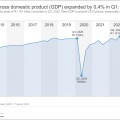Natural capital accounting
Quick Fact
Placed end-to-end, South Africa’s rivers would encircle the earth 4 times (find out more here)

The natural environment provides resources – such as water, land, plants, animals, ecosystems and minerals – that drive the economy and other human activities. The effective measurement of the extent of resource use is vital to ensuring sustainable development in line with the country’s National Development Plan (NDP).
Natural Capital Accounting (NCA) refers to the use of an accounting framework to provide a systematic way to measure and report on stocks and flows of natural capital, analogous to accounts for other forms of capital. It is a broad term that includes accounting for individual environmental assets or resources, both biotic and abiotic (such as water, minerals, energy, timber, fish), as well as accounting for ecosystem assets and ecosystem services.
NCA helps to standardise and formalise statistics and indicators related to the environment, and to give them the same standing as economic and social statistics and indicators. NCA will support South Africa’s country reporting on the Sustainable Development Goals (SDGs) and the Post-2020 Global Biodiversity Framework. Not least, the National NCA Strategy responds to the need for national environmental indicators identified in South Africa’s National Development Plan (NDP) 2030. NCA has also been identified through the African Ministerial Summit as an important tool to achieve coherent delivery of the 2030 Agenda for Sustainable Development and Africa’s Agenda 2063.
Statistics South Africa (Stats SA), which is South Africa’s national statistical office, has been involved in NCA since the late 1990s, and published South Africa’s first water accounts in 2000. Subsequently Stats SA has published mineral, energy and fisheries accounts under the Environmental Economic Accounts Compendium reports. More recently, since 2015, South Africa has undertaken ecosystem accounts. Ecosystem accounting is a relatively new area of work within NCA, and South Africa is at the forefront globally in this area of work.
NCA globally and regionallyAt the global level, Stats SA serves on the UN Committee of Experts on Environmental-Economic Accounting (UNCEEA), which oversees the development and refinement of the global standard for NCA. The measurement framework for NCA is the UN’s System of Environmental-Economic Accounting (SEEA), an internationally agreed standard analogous to the UN’s System of National Accounts for economic statistics such as GDP. South Africa’s work in NCA has fed directly into the development of the newest element of the SEEA, called SEEA Ecosystem Accounting, which was adopted by the UN Statistical Commission at its recent meeting on 10 March 2021. This was enabled through the recently completed EU-funded Natural Capital Accounting and Valuation of Ecosystem Services (NCAVES) project, which was led globally by the United Nations Statistics Division (UNSD) and the United Nations Environment Programme (UN Environment), which is led jointly in South Africa by Stats SA and SANBI.
Stats SA and SANBI are also participants in the recently established Africa NCA Community of Practice which is convened by the World Bank. South Africa is represented on the Steering Committee, which is chaired by Botswana and which met for the first time in January 2021. NCA has been a focus of discussion at the African Ministerial Conference on the Environment (AMCEN) and is a commitment in the Gaborone Declaration on Sustainability in Africa (GDSA).
Minerals
Fisheries

South African economy expands by 0,4%
After contracting by a revised 1,1% in the fourth quarter of 2022, real gross domestic product (GDP) edged higher in the first quarter of 2023 (January‒March), expanding by an estimated 0,4%.1 The manufacturing and finance industries were the major drivers of growth on the supply side of the economy. The demand side was lifted by read more »

